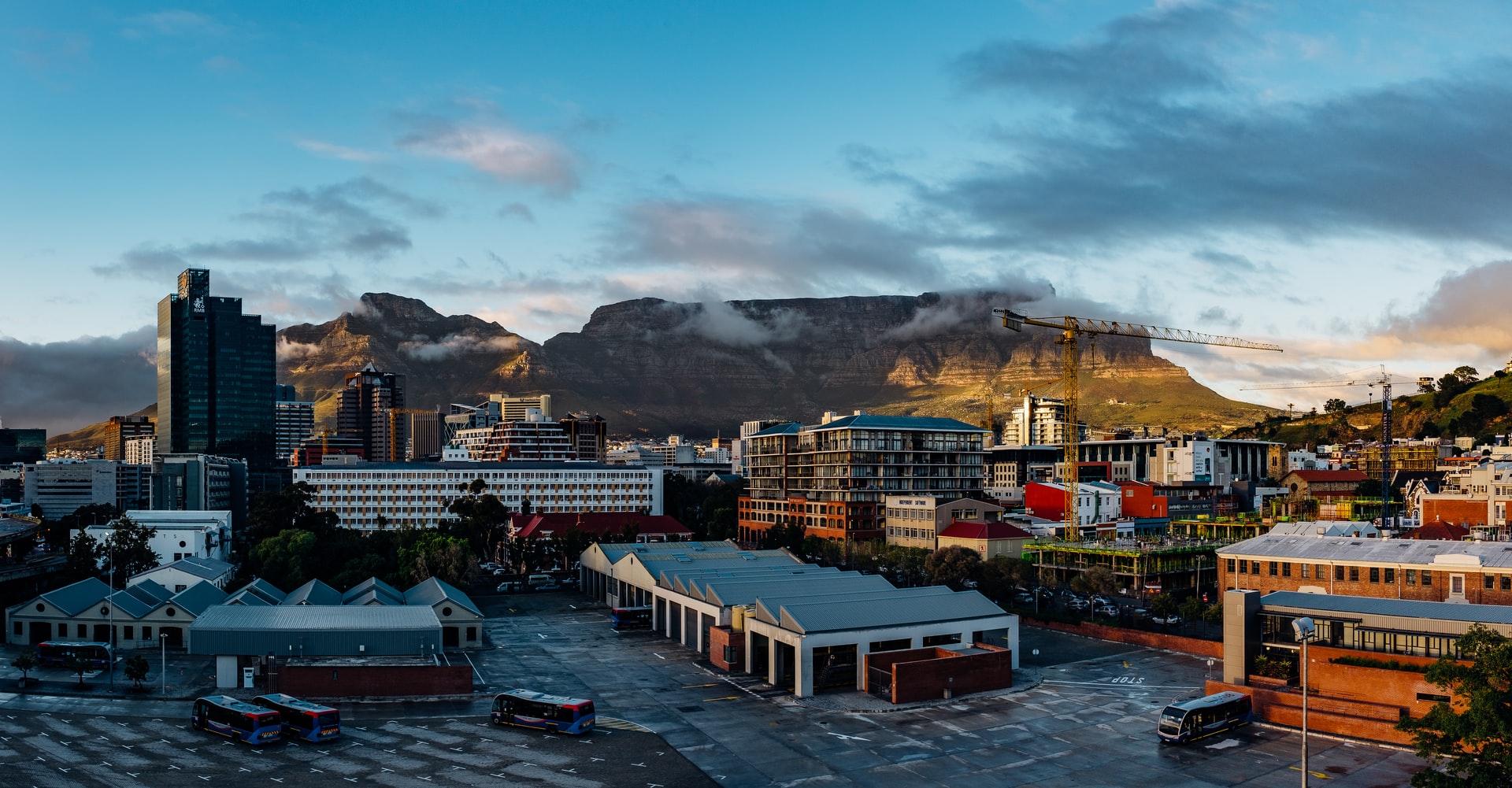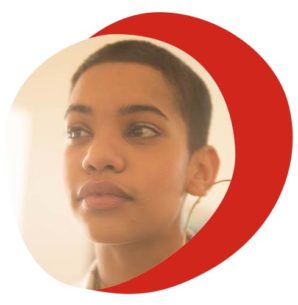At the southwestern tip of the African continent, the cosmopolitan city of Cape Town faces the Atlantic coastline. It is a city with many different names and innumerable economic realities. It is equally known for its iconic mountainscapes and the bruises left by apartheid. According to the World Inequality Lab, the gap between South Africa’s richest and poorest has not narrowed since apartheid ended in the early 1990s.
Cape Town became southern Africa’s first point of colonization as European settlers began their occupation in 1652. For this reason residents and visitors alike call it “the Mother City.”
The Khoisan, an indigenous tribe of South Africa, call the city //Hui !Gaeb, which means “where the clouds gather.” Just 27 years into democracy, Cape Town is still largely divided into racialized areas, from lush mansions on the mountain slopes to townships on the Cape Flats.
Today, the city is home to about 4.7 million people and is South Africa’s second-largest economic center after Johannesburg. Cape Town’s per capita GDP is 32% higher than the national average. It also has the lowest unemployment rate in South Africa — two points less than the national unemployment rate, which reached 34.4% this summer. We spoke to six Cape Townians about their experiences working and living in the Mother City.
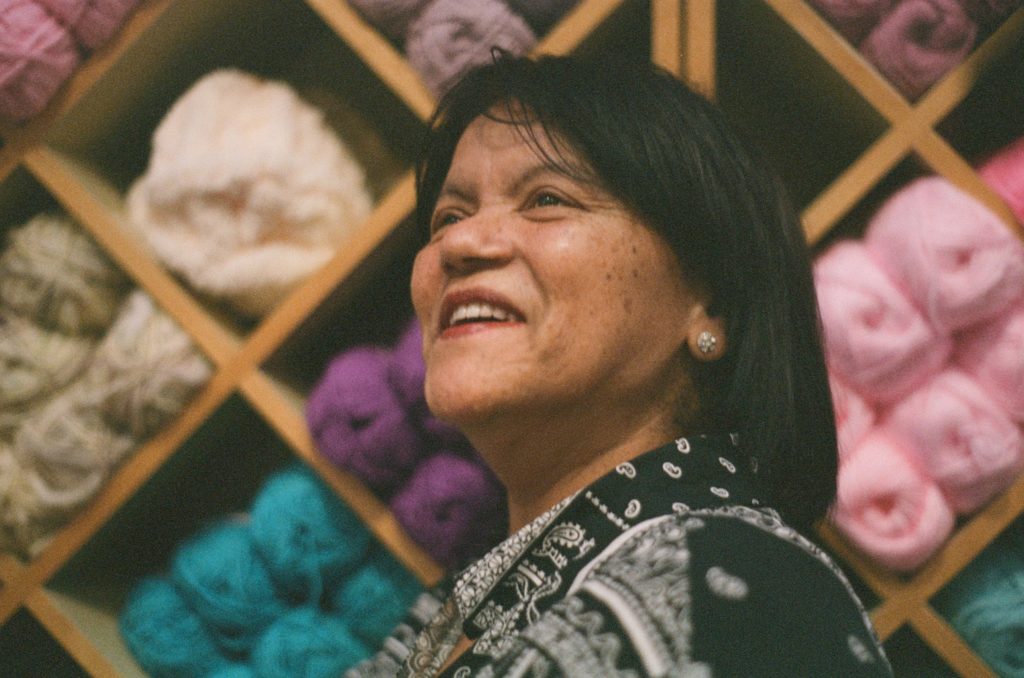
Elsabé Solomon, 58
Seamstress and store assistant
I got my first paycheck when I was really young — I wasn’t even married yet. When I began working here, my paycheck was ZAR 350. What is that today? That’s nothing. But in those days, it was a lot of money. I gave a portion to my mother, but I also loved spending it on myself since I worked hard for it. I’ve been working for the same company for about 32 years now.
In Cape Town, the standards of living are steep, and salaries are never enough. You always have to have a side hustle.
In Cape Town, the standards of living are steep, and salaries are never enough. You always have to have a side hustle. With us in the sewing industry, we can make money on the side by doing alterations for people. But I love my paycheck. It gives me peace of mind to receive it every month. If I could get more, it would be welcomed. If I could earn ZAR 15,000, it would make my life very comfortable. People in my kind of job are earning ZAR 3,500 or less. I wonder how people actually make a living with that.
My company has been helpful through the pandemic because they were supportive, even during the nationwide lockdown. Although we didn’t get our full salaries in the months away, at least we got something. I really appreciated that, because who will give you that money if you don’t work? They paid us a portion of our salary, plus the Unemployment Insurance Fund, that made up our full salaries in the time we couldn’t work.
Before I started working here, I didn’t know a thing about sewing, but my company showed me everything. I love to be involved with the customers. I travel to work with youngsters, and they keep me young too. I really enjoy myself. There are people my age who can’t work, and I’m grateful that I can still do it.
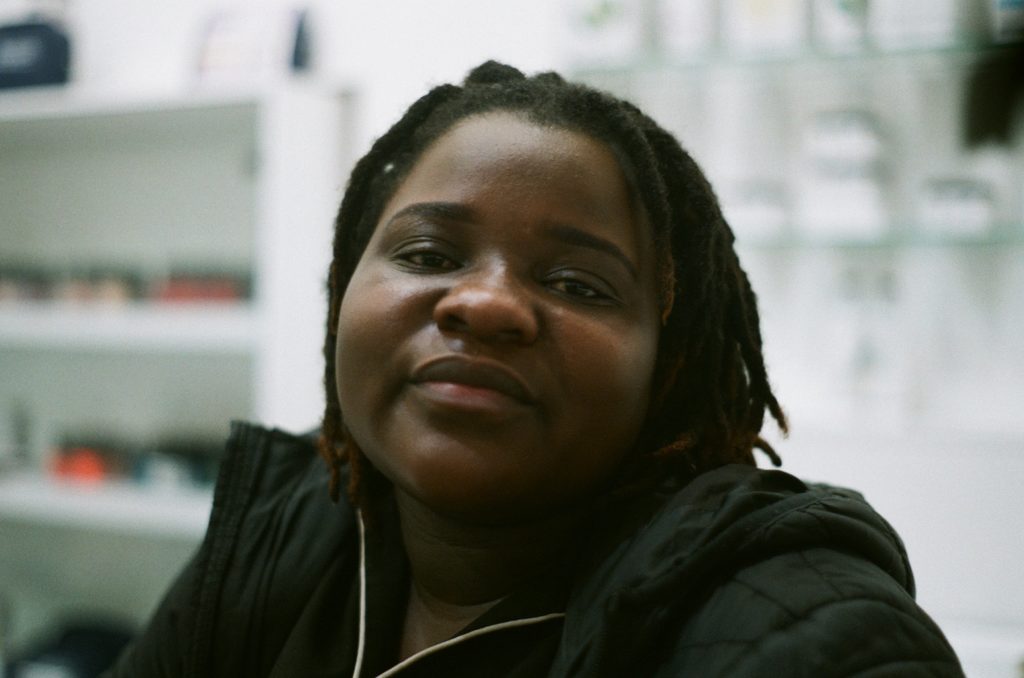
Precious Viriera, 24
Nail technician
Ever since I was growing up, I loved all things beauty-related. It was easy to study and do this job because it’s always been my dream to be a nail technician. I really love to see people happy with the work that I do, and it brings me joy to see them becoming more confident.
Sometimes it’s really stressful to work in the beauty industry. But at the end of the day, I love my job, and I’m passionate about what I do. At the beginning, a friend taught me how to do nails. Then later on, I went to study. I enjoy my work environment because they support me in my education. I’m still undergoing training at my job so that I can advance my skills and techniques.
It empowers me to be able to take care of my 5-year-old child by making sure his lunch box is full.
When I got my first salary, I was so happy. It was nothing big, but I was happy to get the job because I had just left another job at the time. My paycheck has been empowering me to fulfill my responsibilities as a mother. The cost of schooling in South Africa is very expensive, so it empowers me to be able to take care of my 5-year-old child by making sure his lunch box is full and that he has what he needs.
As a whole, I think nail technicians are underpaid. The average salary for nail technicians is around ZAR 5,000 monthly. Without training and if you are not employed in a formal salon, it can be much less, like ZAR 2,000. If we could be paid at least ZAR 7,000, it would help us with the cost of living.
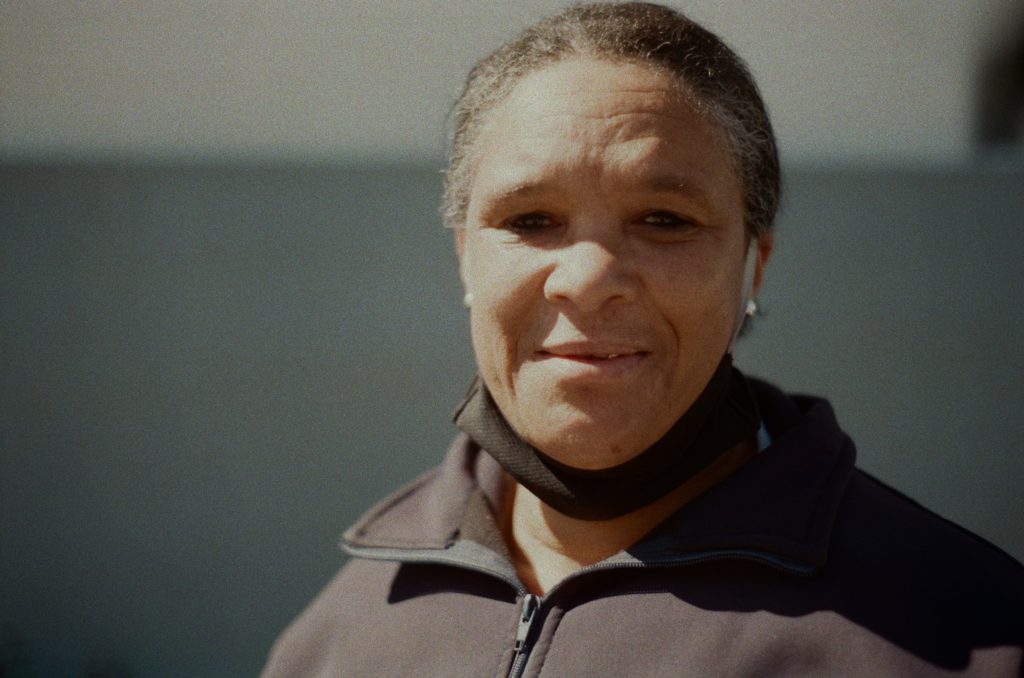
Patricia Hartogh, 53
Cleaner
I’m happy that I have a job, because I was previously unemployed for years. I was working at a hospital as a cleaner and had to leave when I had a baby. The job I have now pays me more, and I have benefits from the company. It helps with my bills, the payments for my house and the basic costs of living.
I work in a shopping mall as a cleaner. I’ve been working here for seven years now. It has really helped me through the pandemic and although it’s very little money, it helps me get through things.
When I consider my job, I appreciate that I make much more than I did in other jobs and there are also some benefits. In previous jobs, I didn’t receive any benefits at all. With this job, I got my first bonus, and we have access to government funds like the Unemployment Insurance Fund, which really helped during the lockdown.
I think the paycheck is powerful because it allows you to be stable.
I appreciate being able to earn a monthly salary. Some people get less than us for salaries in their jobs, maybe less than ZAR 2,000 per month. Some people who don’t have a stable job might end up making only around ZAR 1,000. I have friends in this situation, and they tell me that what they earn on a monthly basis, I earn on a weekly basis. I think the paycheck is powerful because it allows you to be stable. Working for a company has allowed me to learn a lot, and I earn more than I would if I was working informally as a cleaner. But if we could earn at least ZAR 5,000 or 6,000, it would be better.
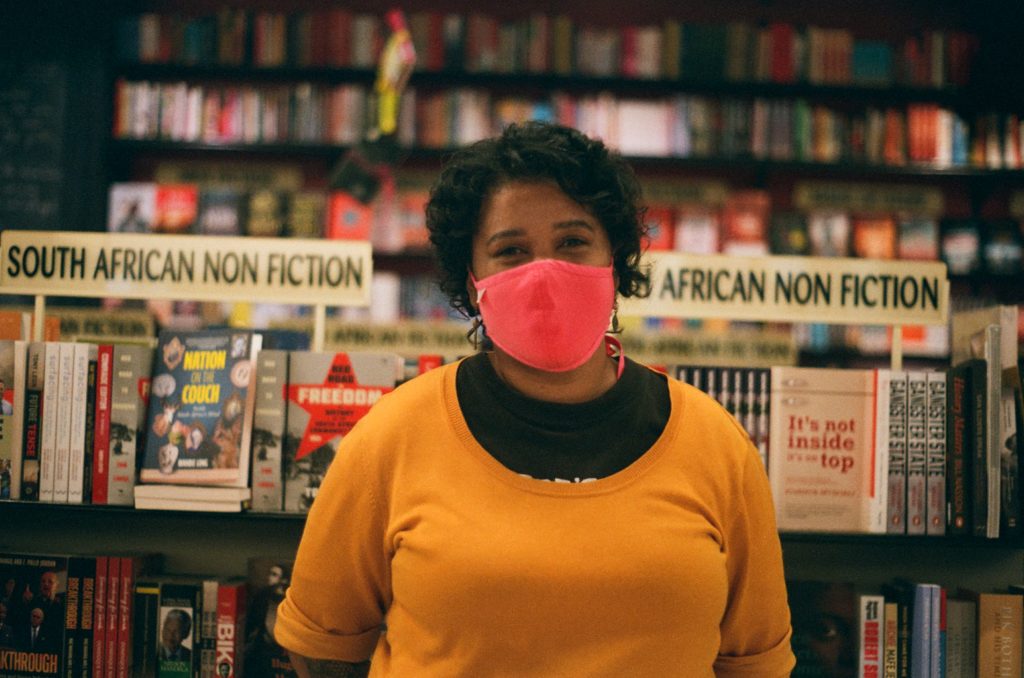
Patula Ballakistan, 33
Bookseller
As a woman, having your own money doesn’t necessarily make you financially free, but it’s a stepping stone towards empowerment and independence. I’ve gained confidence. There’s a self-assuredness that arose as I earned my own money.
I’ve gained confidence. There’s a self-assuredness that arose as I earned my own money.
I’ve been working as a bookseller for about eight years now. I started at the end of 2013 and have never left. My first paycheck was as night staff. I earned ZAR 4,000 and helped out with bills for Christmas. I was really happy with that money. When I became a full-time staff member, I used the money towards studying a course on teaching English as a foreign language.
Having a stable income allows me to spend money on myself. I love to buy gadgets. It may not be top-of-the-line products, but I can invest in things for myself, and I can pay for them upfront instead of taking out credit. I find it empowering to receive a consistent paycheck. When you have to deal with rent, bills and food, I feel secure knowing that on the same day every month, I will be paid, and I can pay my bills and put food in the fridge.
The going wage for a bookseller is around ZAR 6,500, but the cost of living is increasing at a higher rate than raises. Our company may be struggling in some ways due to the pandemic, but they have been protecting their employees by ensuring we are paid throughout, regardless of the financial setbacks. For us to not have fired anyone, that’s big!
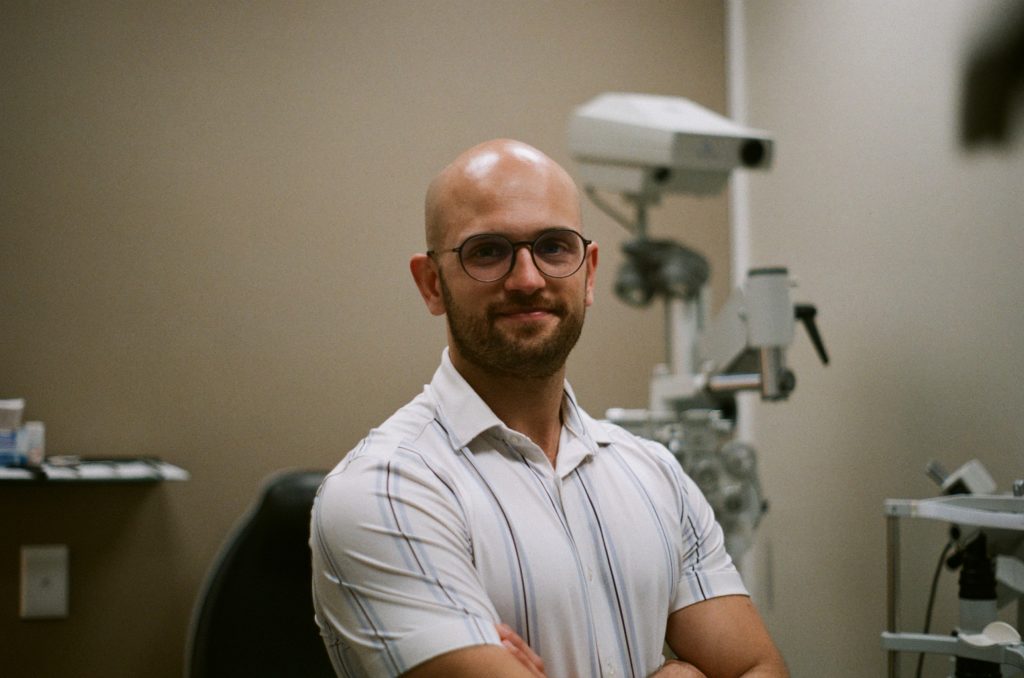
Armand Rautenbach, 31
Optometrist
When I received my first salary, I immediately began to budget. I was fortunate to not have any debt from university. As soon as I got my first paycheck, I began to put money towards my medical aid and pension. I bought a car and used the rest for my rent and food budgeting.
When I started working 10 years ago, I started with a salary of ZAR 16,000 per month, which is very low. But within two years it jumped by ZAR 10,000. Since that very quick increase there has been a plateau.
Initially, I was hoping to start a private practice, and I still hope to do that one day. But with the pandemic, I thought it might be a good time to stay grounded. It’s a nice profession to work for someone as well. I’d say that the field of optometry has remained very stable throughout the pandemic. With everyone sitting in front of their screens nowadays, it’s actually benefited us since people’s vision is getting worse.
With the pandemic, I thought it might be a good time to stay grounded.
Salaries in my field range from ZAR 20,000 to 60,000 monthly, depending on your experience and where you work. Cape Town and Johannesburg have higher salaries than other South African cities because the cost of living is higher. On average, I would say that optometrists earn between ZAR 30,000 and 40,000.
I think I earn quite a good salary if you look at South Africa as a whole, but I don’t think I earn enough based on my qualifications and experience. It’s a bit under the range for optometry and there’s quite a shortage of optometrists in the country, which is due to the rising rates of visual deterioration. If I could earn ZAR 55,000 that would be better, but I wouldn’t be ecstatic. If I could earn ZAR 60,000 per month, that would be great.

Noluthando Mqadi, 25
Actuarial specialist
Growing up, my father really wanted me to become a businesswoman. He had this idea of empowering his daughter to become a really strong independent person. I tried to live up to that, but I wanted to do something that was more scientific, more egalitarian. In high school, I studied accounting, which was the one subject that linked me to the business world.
I remember telling my dad that I wanted to do something in the sciences. I mixed the business and sciences together, and that’s how I ended up in actuarial sciences. Now, I work in pension investments for large corporate trustees. I’ve been working in this field for three and a half years.
I made sure I paid my future self.
Leading up to my first paycheck, I remember being very intentional about where I put my money and how I manage it. I made sure I paid my future self. That’s been a running theme for me, to consider my future self. I earn quite a bit of money. It’s not uncommon for people in my field to earn close to ZAR 500,000 per year, which is about 41,000 per month. A lot of people with my educational background have been able to catapult themselves into much higher pay scales. But I also know a lot of people who don’t make that much, myself included. Regardless, it’s quite a high salary considering my age and the country we live in.
I think I earn well above what someone would need to live comfortably, and I recognize that. I could still survive with a lot less, which is why I’m able to pay my future self. Being employed allows me to liberate myself from the feeling of obligation to my parents’ opinions and expectations of me. Since I’m able to support myself financially, I’m not dependent on anyone to take care of me. I can now be very resolute in my opinions, even if they differ from other people’s opinions.
Read more
Sign up to keep up to date with ReThink Q.
